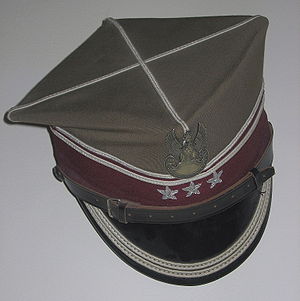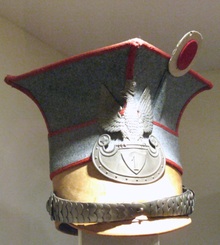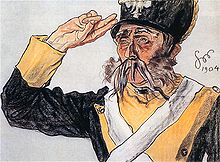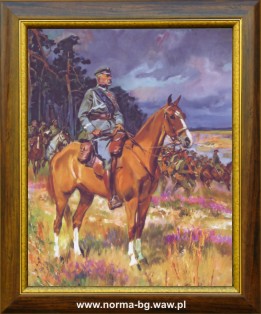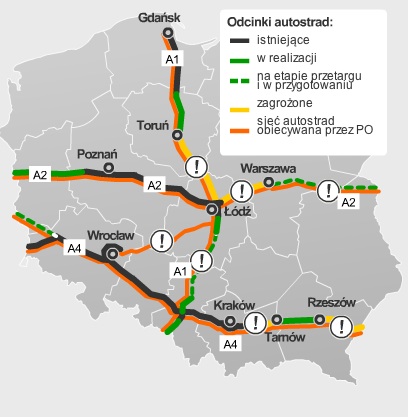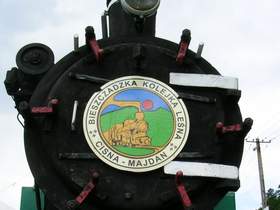News /
Human Trafficking in and from Poland [80]
So it must be a new treaty - the ill-fated Chechen family stays in Poland, as I incidentally found out just an hour ago.
A former Ukrainian border guard officer was arrested yesterday by the Ukrainian Security Service. He is accused of organizing human trafficking on the Polish-Ukrainian border, and in particular - of smuggling a Chechen woman, Kamisa Jamaldinov and four of her children, on September 2007.
The man who organized smuggling operation of Kamisa and her children, was wanted since April 2008, when he was identified as a main culprit. He was detained at one of Kiev bazaars, where he worked as a salesman. - We have worked very closely with the Ukrainian side for several months following the tragedy on the border. Later, the Ukrainians have been working on this issue by themselves - said Anna Michalska with the Bieszczady Border Guard.
In 2007, Kamisa and her three daughters - 6-year-old Emma, a 10-year Sieda and 13-year-old Chava - and her 2-year old son Emim wanted to reach Slovakia, and then through Austria go further west. She paid $2700 to the former officer of the Ukrainian border guard.
boletus: Their story is described in post #1
Kamisa, her son and her husband Pasha - who also had planned to cross the border illegally but after the death of the girls he did so legally - stay in Poland. They live in Wolsztyn, where they were offered an apartment from the local government.
translated from Polish source:
Translated from Polish source:nowiny24.pl
They flee through Bieszczady. Instead of reaching heaven they land in brothelsChris Potaczała
They flee through Bieszczady to the west. Future prostitutes, criminals ... Bieszczady Border Guards have detained about hundred illegal immigrants last year. Human trafficking and contraband of cigarettes is an everyday reality.
Although the external frontier of the European Union is packed with watchtowers, Asians and citizens of the former Soviet Union continue their attempts to force it and move deep into Poland or further west. Until recently, Poland was considered only a transit country for most immigrants. Today - more and more often - it is treated on an equal footing with other EU countries. Although for an Ukrainian Poland is still a worse place to live than Germany or Italy, but for a Vietnamese or a Chinese - not necessarily so.
Flee both - poor and rich- Go to see Wólka Kosowska near Warsaw - says an operations officer with Bieszczady Border Guard. - There are many Asians there, this is a big shopping centre. Some of them are legal residents, many others are illegal, with outdated residence permits from the Czech Republic and Slovakia. Many have lived there for 5-6 years.
According to border guards, who interrogate detained immigrants, the belief that illegal immigrants to Europe are solely poor, miserable and persecuted in their countries by totalitarian regimes is completely false. - There are only few such people; the majority of them live at decent level, as evidenced by photographs of their homes, money carried or even clothing - assures the operations officer of Bieszczady Border Guard.
- But their excuses are often similar. They flee to Europe, because they want to quickly settle down and prepare a place for other family members. A myth of a quickly achievable wealth and of unfettered freedom is extremely strong and effectively obscures the reality. Another category of illegals are the common criminals fleeing from justice in their countries.
Over the mountains and forests of the Ukrainian-Polish border go men, women and children. One feels most sorry for the latter - fearful, often frostbitten and hungry. The case of Kamisa the Chechen, who three years ago has lost three daughters in the Bieszczady Mountains, is the most tragic example of a failed human trafficking. Even though it was widely reported, not only in Poland, it has not discouraged other Chechen, Georgian and Moldovan families from following their dreams.
Women land in brothels- Typically most Ukrainian guides abandon groups of illegal immigrants before they even reach the border - says another operating officer of the Bieszczady Border Guard. - They only point in the direction to go and disappear. In addition, they often lie, telling the disoriented immigrants that Germany is just beyond the forest in front of them. The average Vietnamese, Iraqi or Afghan has no idea where he is, and these people put their entire faith into their guides - who are devoid of any feelings.
On must feel sorry for women, mostly young and pretty, who - after crossing to central Poland or to the West - land in brothels. - Some are aware of the way how they will be paying back for the smuggling, others only learn about it later, at their destination - say the officers. - Vietnamese and Chinese women are in majority. Recently, we stopped a group in which there were a few girls. One had an album of her professional photos. She was well prepared for the new life.
And men? They can be divided into those who want to work illegally and to those who will seek political asylum. - The problem is that, in many cases, they can hardly explain who persecutes them and how - says an officer with the Border Guard facility in Krościenko. - Frequently, it shows that nothing of the sort takes place. But there are cases that whole families flee from war-torn countries - more and more frequently from Afghanistan.
With GPS or blindlyThe section of the eastern border, which is controlled by the Bieszczady Border Guard is the toughest. It is hilly, densely wooded, traversed by ravines and streams. On the surface, it is easy for the illegals to hide here, to dodge the chasing border guards and avoid them for miles and miles. Especially if they are led by an experienced guide equipped with GPS. - Once a group of Vietnamese crossed the Polish border near Stuposiany, but we only stopped them at Otryt massif, 28 km away from the border - says an officer from Stuposiany. - This shows how difficult it is to work in such terrain, and that the modern smugglers are equipped with the newest devices.
- We sometimes deliberately allow a larger group of illegals to enter deeply into Polish territory - adds the border police officer. - We are mostly interested in catching the organizers and in liquidation of their smuggling channels. Only then we can talk about success.
Most of individual immigrants, who go on their own, do not even have a map and a compass. This concerns mainly Asians. They wander around, lose their strength - playing with their life. Their trip to Europe often ends up in a hospital - with frostbites, pneumonia, or psychic trauma.
Having left their dearest in home country, paid a smuggler $7,000-8,000 per person and then being caught with almost certain deportation awaiting is a trauma for those people - say border guards.
Sometimes the guards save lives of illegals. Kamisa and her son survived, because the patrol from Ustrzyki Górne spotted them high in the mountains. Two Georgians were also lucky last Winter, when - after forcing their way through the border in vicinity of high pastures - were brought to a hospital in a state of extreme hypothermia. Lucky was also an Iraqi woman who was discovered unconscious in Bukowiec.
In October of this year, a Ukrainian escaped death, who - after breaching the border on the San river - wandered around for few days until he fainted from exhaustion in a grove near Smolnik. He had fresh stitches from recent surgery, diseased kidneys, and perhaps it was his third attempt to break out to the West.
With cigarettes through woods and a riverThe border does not lack desperadoes. Last year, another Ukrainian boarded a raft and floated down the San river to Sękowiec. - It was February, a big thaw, the snow was melting fast, and the water rose fast by a minute - reports the border guard from Stuposiany. - And he was on that pontoon, on the rough, cold San... He would have probably floated further down, but the pontoon was punctured, so he had to climb up ashore. It turned out that he spent 11 years - out of his 33 years of age - in prison, and his run down the river was a test in preparation for a potential cigarettes smuggling channel.
The contraband of cigarettes is, in addition to human trafficking, the most serious threat to the Bieszczady section along the eastern border.
Only in September and October last year two Polish-Ukrainian groups were caught. They specialized in smuggling and trafficking of Ukrainian cigarettes.
- Usually, the Ukrainian goods are carried to an agreed upon point in the woods, then picked and transported from there into the Poland - explains the officer from Krościenko. - Involved are mostly young people, sometimes minor, often from dysfunctional families. They do not make big money, but the money is not little either.
Cigarettes are smuggled almost exclusively by residents of the border towns and villages. They are very familiar with the terrain and they know how to avoid patrols. Cartons of cigarettes are carried in backpacks or in boxes wrapped with belts.
Usually one person moves 20 cartons at a time - with 20 packages in carton. In Ukraine, a packet of cigarettes costs an average of 2 PLN, in Poland a peddler sells it for 6-7 PLN.
- With such a profit, the smugglers are ready for anything - emphasizes the officer. - They would not not hesitate to use the knife, and maybe a gun if stopped by a border guard. One of these was pursued by guards for many kilometers. He crashed near Sanok.
Translated from the pages of Polish Border Guard, Bieszczady region:
2011-04-13: Two migrants from Moldova, who were heading to the Western Europe, were detained by officers from Border Guard, Korczowa outpost, in Kobylnica Wołoska - 2.5 km from the border. Two young men: 23-year-old Anatoliy and 27-year-old Vitalik crossed on foot the so-called green border between Ukraine and Poland. They did not have any documents or money. Following an investigation, both citizens of Moldova will be handed over to Ukrainian Border Guard, on the basis of the agreement on the readmission.
2011-05-09: Officers of the Border Guard - from Bieszczady Division, outposts in Wojtkowa and Krościenko - arrested a family of five Afghans in the vicinity of Grąziowa - 10 km from the Polish-Ukrainian border, who crossed the border on foot from the Ukraine to Polish.
The detained illegal migrants are a married couple with a seven-year-old child and their two relatives. They explained that their goal was to reach Western Europe, where they planned to take up a job. While hiking from Ukraine to the Polish Bieszczady they used a compass and a map. They had no documents or money.
2011-06-03 : Yesterday, officers from the Bieszczady Border Guard detained two groups of illegal immigrants. Around noon a Border Guard patrol from Stuposiany outpost, stopped three Georgians near the village of Smolnik, who made the illegal crossing of Ukrainian-Polish border. The migrants are 43-, 42- and 30-years-old. One of them had already tried twice to cross the border by car in 2010 - each time being refused the entry. He then moved to Kiev, until few weeks ago when he was joined by the other two Georgians. They paid 300 euros to an unknown Ukrainian, who led them to the Ukrainian-Border. They explained that they intended to look for a job in Germany.
2011-06-03: Also yesterday, in late evening, officers of the Korczowa outpost, detained a group consisting of 4 people near the village Wielkie Oczy. The migrants - all citizens of Moldova - are a married couple (32- and 23-years old) and their two friends (24- and 19-years-old). One of the men has already been arrested in 2006 by Border Guard officers from Bieszczady Division, when he tried to sneak to Poland in the same illegal way - through the so-called "green border".
The migrants were going to go to Warsaw, to join their friends living there and to try to find jobs with their help.
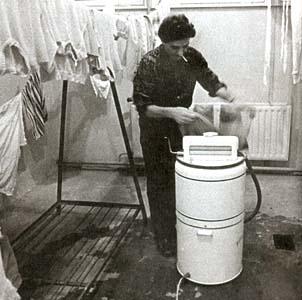
 PolishForums LIVE / Archives [3]
PolishForums LIVE / Archives [3]

